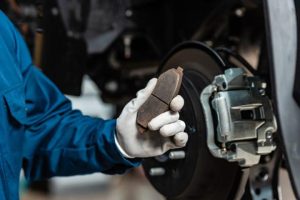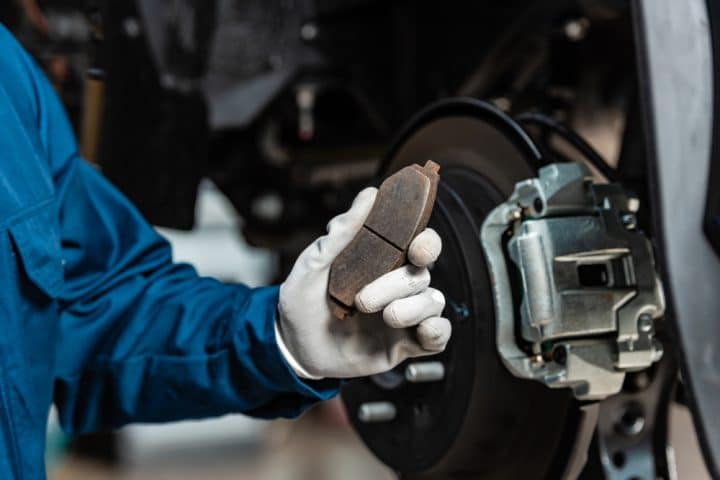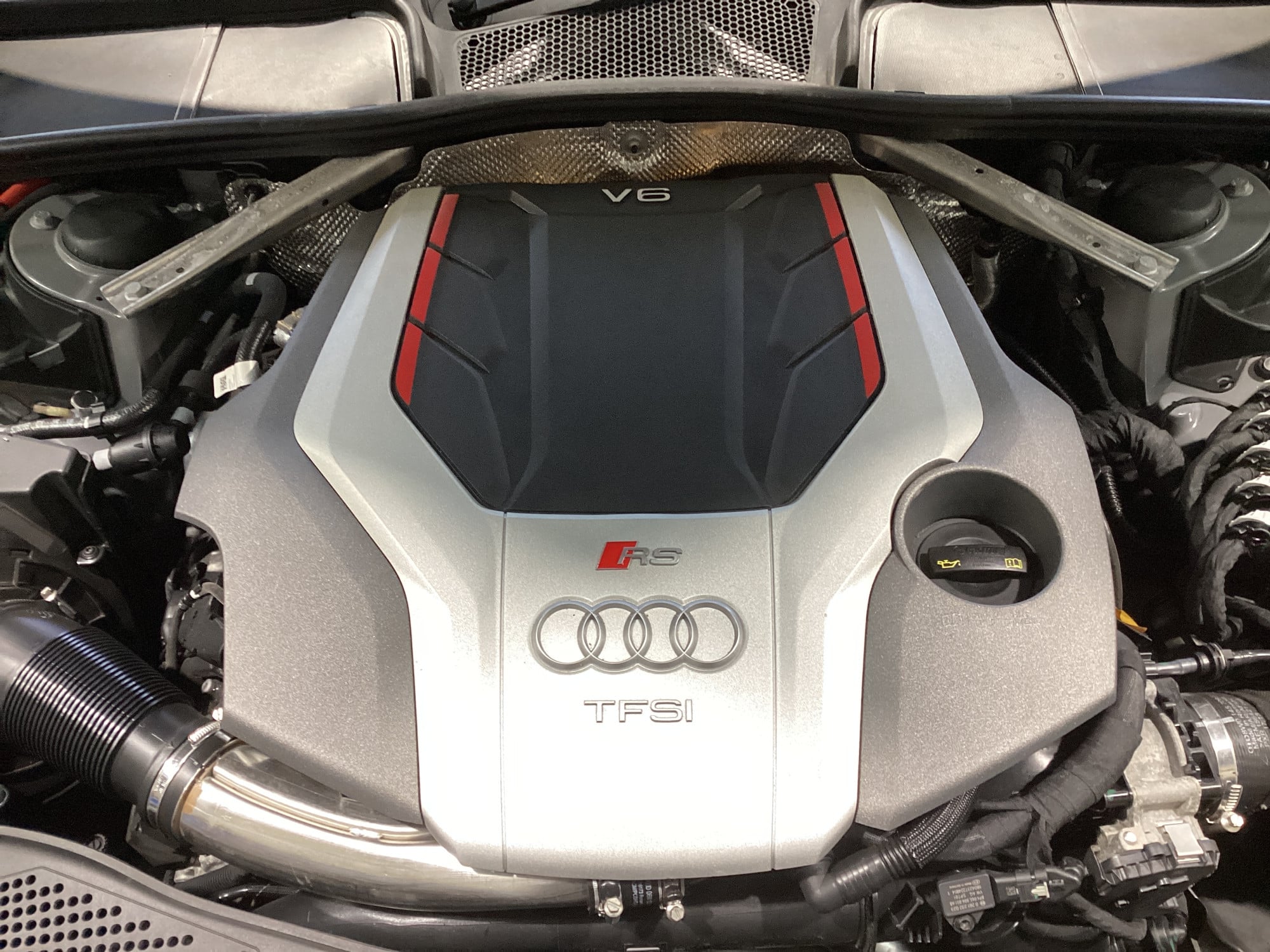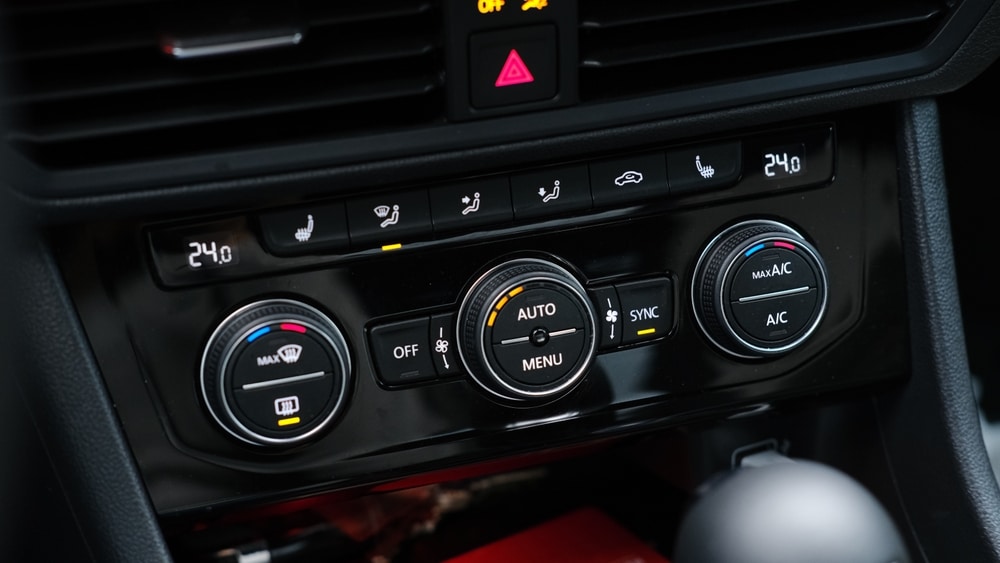BMW Brake Pads
Is your BMW in need of new brake pads?
This blog post will provide you with the information you need to help determine whether you need new brake pads for your BMW.
The importance of having good brakes cannot be overstated, so don’t ignore any issues or delay any repairs. Quality Car Service is here to help with all your BMW brake system needs.
So let’s dive into everything you need to know about maintenance for your BMW brake pads.

The All-In-One Guide to BMW Brake Pads
When you press the brake pedal, brake pads slow down or stop the vehicle. They are a fundamental component of a vehicle’s braking system. They work as follows:
- Creating Friction: By pressing the brake pedal, hydraulic pressure is applied to the brake calliper through the brake fluid, causing the brake pads to squeeze against the brake disc, causing friction.
- Stopping or Slowing Down: If the braking force is strong enough, the friction between the brake pads and the discs will slow down the rotation of the wheels, eventually bringing the vehicle to a complete stop.
- Heat Dissipation: Friction during this process generates significant heat in the brakes. In order to prevent brake fade (a decrease in braking performance caused by excessive heat), brake systems are designed to handle and dissipate this heat. Disc brakes have cooling fins or ventilation holes to disperse heat and prevent brake components from overheating.
- Release of Brake Pressure: In response to releasing the brake pedal, the brake hydraulic pressure decreases, allowing the brake pads to move from the discs and allow the vehicle to move freely.
Due to friction and heat generated during braking, brake pads wear and tear over time. Eventually, they become thinner and less effective, necessitating replacement.
There are guidelines provided by BMW showing brake pad replacement intervals, so we recommend that you have your brakes inspected regularly by a trusted BMW garage like us here at Quality Car Service to ensure they remain safe and reliable.
Our BMW specialists at Quality Car Service have decades of experience working on all BMW models. No matter what BMW model of these luxury cars you own, our expert technicians will keep your brakes working like new.
If you’re in Milton Keynes or the surrounding areas, you can count on us to repair any BMW brake system issue.
Brake Pad Replacement Signs
Is it time to replace the brake pads on your BMW? Watch out for these signs:
- Squeaking or Squealing Noises: Unexpected noises when braking may indicate worn brake pads.
- Longer Stopping Distances: As a result of worn brake pads, your BMW’s braking efficiency is reduced, which increases stopping distance. As a result, your safety and the safety of other road users can be compromised.
- Brake Pedal Vibrations: Are you experiencing vibrations when you step on the brakes? It may indicate uneven wear on the brake pads or rotors. If your BMW has this problem, the steering wheel may vibrate too.
- Dashboard Warning Light: Newer BMW models have brake pad wear sensors built into them. In the event that the pads need to be replaced, a warning light will appear on the dashboard.
- Brake System Visual Inspection: Whenever the brake pads are worn down to 3 mm or less, it’s time to replace them. Visual inspection of the braking system should reveal this. However, in case you are unfamiliar with this, you should always seek professional assistance.
Have any of these signs caught your attention? Take action now. Call Quality Car Service today for a quality inspection and replacement.

The Different Types of BMW Brake Pads Available
There are three types of BMW brake pads: organic, semi-metallic and ceramic.
- While organic pads are quieter and softer, they tend to wear out more quickly.
- Heat dissipation and performance are improved by semi-metallic pads, but their operation can be noisy.
- While ceramic pads are usually more expensive, they provide excellent performance with minimal dust and noise.
With Quality Car Service, you can rely on our expert technicians to install high-quality brake discs that are right for your BMW and within your budget.
How are Technicians Replace Brake Pads
Changing brake pads requires a skilled technician. In order to ensure safety, brake maintenance must be completed safely and efficiently.
In order to complete the process, our technicians take the following steps:
- Safety First: Make sure the BMW is parked on a flat surface, with the hand brake applied.
- Preparation: Loosen but do not completely remove the wheel nuts on the side that needs its brake pads replaced.
- Car Lifted: We lift the side of the car that needs brake pads changed and secure the jack stands underneath it.
- Wheel Removed: All wheel nuts have now been removed, allowing the wheel to be removed for access to the brakes.
- Brake Calliper Accessed: The brake calliper is located and is typically secured by two bolts. The bolts are removed.
- Old Brake Pads Removed: Remove the old brake pads from the calliper bracket.
- Calliper Piston Pushed Back: In order to accommodate the new, thicker brake pads, the calliper piston is pushed back.
- New Brake Pads Installed: New brake pads are inserted into the calliper bracket in the same position as the old ones.
- Calliper Reattached: Bolts are used to secure the calliper over the new brake pads.
- Wheel Replaced: The wheel is reinstalled and the wheel nuts are loosely tightened.
- Car Lowered: We carefully lower the car from the jack stands to the ground.
- Wheel Nuts Tightened: The wheel nuts are tightened securely once the car is on the ground.
- Brakes Tested: The brake pedal is pressed several times before driving to ensure that the brake pads are properly seated.
- Brake Fluid Level Checked: We will check the brake fluid level and add fluid if necessary.
Please note that this is a simplified overview of the process. The detailed instructions can vary depending on the BMW model and year. Always let a BMW specialist handle this job, like our technicians here at Quality Car Service.
Our ability to access dealership-level technical information ensures that as an independent BMW specialist, we always provide you with better value than a main BMW dealer.
Brake Pad Maintenance for BMW Vehicles
Here at Quality Car Service, we recommend that you have your BMW brakes professionally serviced regularly to ensure they last as long as possible.
By performing regular maintenance, you ensure that your vehicle continues to run like new and identify any problems early, allowing quick and effective fixes.
At Quality Car Service, our technicians inspect your brakes thoroughly. The system is thoroughly inspected for faults and repaired the first time.
Here’s what we include in our inspection:
- We will inspect your brake pads for defects and ensure they are thicker than the legal minimum.
- We will check the brake fluid condition and ensure it is free of any contamination.
- We will ensure the brake discs show no signs of warping or excessive wear.
- We will ensure that the brake callipers are not damaged or leaking.
In comparison to the local BMW dealership, we offer dealership-level service but with unmatched value. When it comes to brake pad repairs, choose us first – we’ll save you time, money, and stress.
Does your BMW need new brake pads? We are here to help you at Quality Car Service – contact us today!



